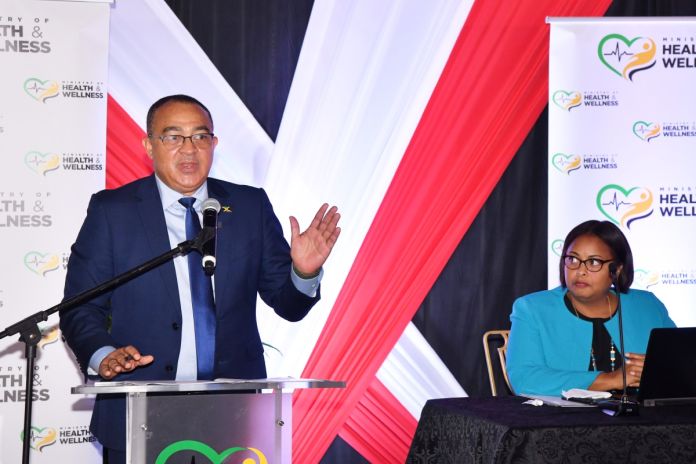By Garfield L. Angus
KINGSTON, Jamaica, (JIS) – The government of Jamaica will soon establish a National Drug Research Network, comprising academia and technical experts, intended to tackle drug use in the island, according to minister of health and wellness, Dr Christopher Tufton.
The network’s task will go beyond prevalence studies and delve deeply into drug use, particularly in high-risk areas and groups.
“Sustained public education campaigns will also be rolled out in short order to increase awareness on services as well as to help people to understand the implications of drugs, particularly our youth who are among the most vulnerable,” the minister indicated, delivering the main address during the press launch of the 2023 National Drug Prevalence Survey at the Terra Nova All-Suite Hotel in St Andrew on November 11.
The National Council on Drug Abuse (NCDA), a department of the Ministry, partnered with the University of the West Indies (UWI) Mona Centre for Leadership and Governance (CLG) and the Inter-American Drug Abuse Control Commission (CICAD) of the Organization of American States (OAS), with support from the National Health Fund (NHF), to conduct the national household survey.
Consequent on the findings, minister Tufton said the first order of business is to generate awareness among key stakeholders about the magnitude of the drug problem facing the population, with widescale dissemination of the information to multiple interests.
“We will also be engaging with stakeholders and partners at the parish and community levels to garner support for a range of interventions, from design through to implementation,” the minister added. “We have a mammoth task, as the influence of social media, popular culture and pro-drug use attitudes are heavy competitors. “There is need for increased public engagement, including at the level of community, for the accessing of services.”
Dr Tufton said the NCDA’s mandate has been expanded to address mental wellness as well as the provision of specialised services, to dually diagnose clients with mental health and substance disorders.
Among the significant findings of the survey are that 17.5 per cent of motorists reported driving under the influence of cannabis (ganja) and illegal drugs, up from 14 percent in 2016; and that some persons surveyed were not aware of the risks associated with many of the substances.





